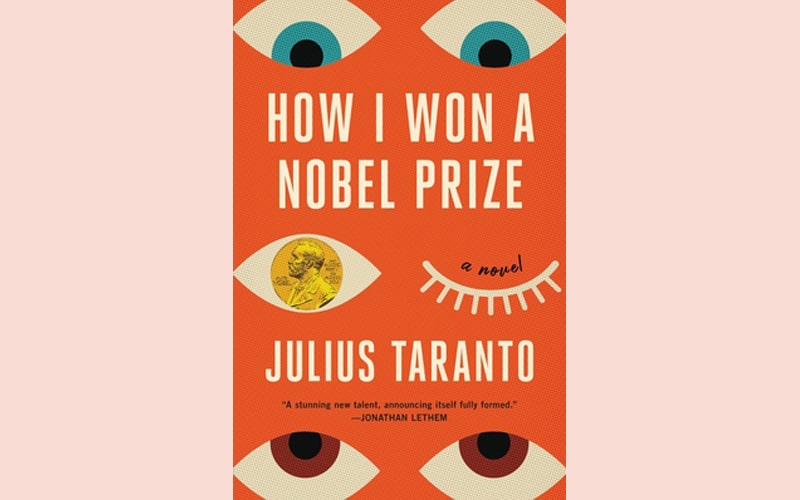I would struggle to resist a satirical campus novel at the best of times, but when a satirical campus novel comes along in which the central edifice is obviously meant to be a massive penis, and where the campus in question is populated by ‘preeminent deviants’, well, my reading it becomes an inevitability.
What is not inevitable in How I Won a Nobel Prize (unless you pay too much attention to the title, that is), is the outcome of Helen – a post-graduate physicist engaged in solving the problem of high-temperature superconductivity, and with it the world’s energy crisis – moving to The Rubin Institute, Plymouth after her PhD supervisor and one of only two living human beings able to understand the work she’s doing is cancelled for a sexual liaison with another post-grad.
Tagging along, resentfully, is Helen’s de jure and sort-of-mostly-sometimes-de-facto husband, Hew. Having to deal with being the second most important man in Helen’s life after Perry Smoot (the supervisor) is bad enough, but when Helen makes them move to an island off the coast of New England that houses a university whose very existence challenges every woke atom of Hew’s body, he goes off the deep end with ultimately enormous consequences.
Now, if you have paid attention to the novel’s title, you’ll know that in at least one way, somehow, Helen’s move pays off. Not everyone gets summoned to meet the King of Sweden. But don’t assume that this novel simply satirises millennial attitudes to social justice and makes a mockery of cancel culture. There’s plenty worth cancelling at RIP (did you see the acronym coming? Cheap, yes, but good nonetheless). But there’s also something inordinately ludicrous about Hew’s attempt at a ‘moral offset’ by forcing Helen to become vegan as a kind of karmic atonement for living among the ‘cancellees and deplorables’ of RIP, and of trying to argue that Perry’s sleeping with a student is a sin great enough to abandon work that could change the entire world for the better.
Ultimately, the one rule that Taranto’s book insists upon is that of messiness. Life cannot be clearly delineated in rows and columns on an Excel worksheet, whether those rows and columns are trying to determine good and bad, right and wrong in morality or in physics. No interactions are so neat. I’m aware that this isn’t sounding very funny right now. But that’s just the point of good satire: it’s easy to joke about the purely ludicrous, but what would be the point? Joking about the ludicrousness interwoven with the most serious aspects of human lives, well, that’s worth doing. Taranto does it.






Click here to change your cookie preferences